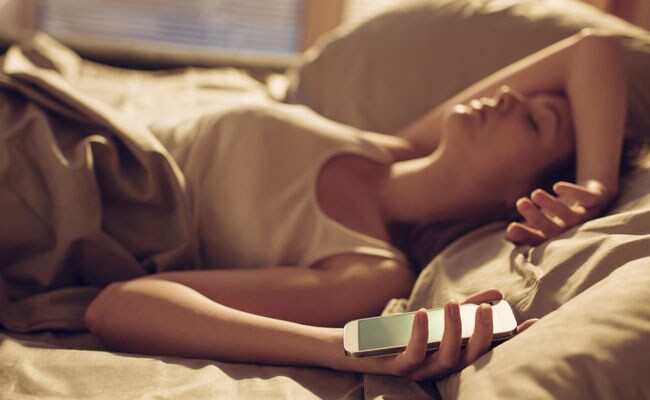
School In UK Gives Alarm Clocks to Its Pupils To Reduce Mobile Phone Use
New Delhi:
In an attempt to stop mobile phones form disrupting sleep of school children, a secondary school in London distributed free alarm clocks to its pupils. All 700 students enrolled at the Lady Eleanor Holles school were given an alarm clock at a special assembly conducted on the occasion of World Mental Health Day. Heather Hanbury, the headteacher, also advised parents to stop their children from using phones, televisions and computers in their bedrooms.
As reported in the Independent, Ms. Hanbury told BBC, "Students often claim they need their phone to wake them up in the morning. Young people are regularly online, dealing with social media, distracted by the idea of missing out if they're not online."
In a survey conducted in 2016 in which 1,500 parents participated, it was revealed that children in UK on average get their first mobile phone by the age of seven and get a smartphone by the time they are 10.
It is also very common for children to refuse to relinquish their mobile phones. A third of those in the age group 12-15 also admitted that they do not have a good balance between screen time and other activities.
Addressing the need for sleep among children, Ms. Hanbury wrote in a blog on the school's website, "It may surprise you to learn that the most important aspect of learning is adequate sleep. Without a proper amount of sleep nightly, it is very difficult to learn efficiently and effectively. Neurotoxins which build up during the day as we learn and experience things, can only be cleansed from our brains by sleep - nothing else will do."
Ms Hanbury also stressed that it is important to sleep for a 'sensible' amount of time, which for teenagers is around nine hours. Highlighting the idea behind providing alarm clocks she wrote that more often than not children make the excuse that they need their mobile phones in order to wake up in the morning. With the alarm clocks at hand now, they wouldn't have that excuse to bring their mobile phones to bed with them.
Click here for more Education News
As reported in the Independent, Ms. Hanbury told BBC, "Students often claim they need their phone to wake them up in the morning. Young people are regularly online, dealing with social media, distracted by the idea of missing out if they're not online."
In a survey conducted in 2016 in which 1,500 parents participated, it was revealed that children in UK on average get their first mobile phone by the age of seven and get a smartphone by the time they are 10.
It is also very common for children to refuse to relinquish their mobile phones. A third of those in the age group 12-15 also admitted that they do not have a good balance between screen time and other activities.
Addressing the need for sleep among children, Ms. Hanbury wrote in a blog on the school's website, "It may surprise you to learn that the most important aspect of learning is adequate sleep. Without a proper amount of sleep nightly, it is very difficult to learn efficiently and effectively. Neurotoxins which build up during the day as we learn and experience things, can only be cleansed from our brains by sleep - nothing else will do."
Ms Hanbury also stressed that it is important to sleep for a 'sensible' amount of time, which for teenagers is around nine hours. Highlighting the idea behind providing alarm clocks she wrote that more often than not children make the excuse that they need their mobile phones in order to wake up in the morning. With the alarm clocks at hand now, they wouldn't have that excuse to bring their mobile phones to bed with them.
Click here for more Education News

